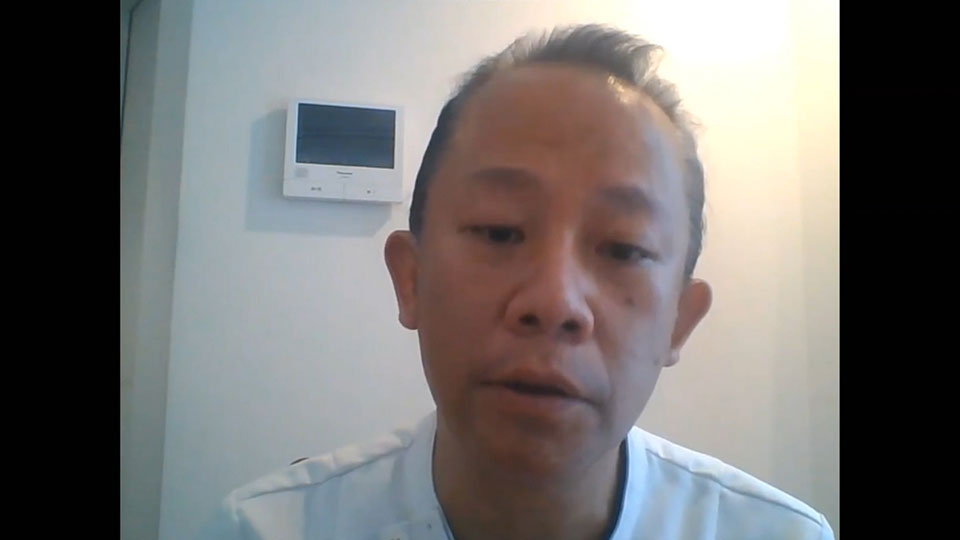According to the Tokyo Fire Department and the Metropolitan Government, about 1,390 emergency patients suspected of having the coronavirus were either turned away by five or more hospitals, or forced to wait more than 20 minutes before their destination was determined, between April 1st and 18th. That’s a fourfold increase from normal circumstances in which only about 20 such cases occur a day. One patient was turned away by an astonishing 110 institutions.
Hospitals turn down patients
Dr. Harada Fumiue, who works at a clinic in Tokyo, visited a man in his 80s for a regular home checkup on the morning of April 10th. The patient didn't have a fever but was dehydrated and had no appetite. Harada decided to send him to a nearby hospital where the man had previously undergone surgery.
Harada says his patient’s temperature was 36.2 degrees, so he didn't initially suspect coronavirus, but a CAT scan revealed shadows on both lungs.
The man was immediately put in isolation and was supposed to be moved to a hospital equipped to handle coronavirus patients. But Harada says everywhere he called, the patient was turned down.
Finally, shortly after 8 p.m., the man was accepted at a hospital more than 40 kilometers from his home. Ten hours had passed since Harada had first checked in on him.
Harada says it was a harrowing experience. And he believes the case is only the tip of the iceberg around the country.

Hospitals struggle with surge in patients
Across Japan, there are some 11,000 hospital beds equipped to accommodate coronavirus patients. The total number of in-patients is at least 6,600.
NHK asked prefectural governments and other entities how many of their beds were occupied as of April 20.
Six prefectures reported that more than 80% of their beds were occupied. They include Tokyo, Osaka, Hyogo, and Ishikawa, which the central government has designated as "special alert prefectures.” The other two are Kyoto and Okinawa.
Prefectural government officials are worried about a shortage of surgical masks and other personal protective equipment, and a lack of medical staff to oversee coronavirus patients.
In Tokyo, to free up hospital capacity for patients in serious condition the Metropolitan Government has started moving people who have tested positive for the virus but are showing only mild or no symptoms to hotels.
Government officials and nurses are on standby around the clock at these hotels, with a doctor present during the day. The patients' temperatures and conditions are closely monitored.
Government officials say the symptoms of more than 90% of patients hospitalized in the capital with the virus are not serious.
Abe calls on people take precautions
Japanese Prime Minister Abe Shinzo spoke to reporters on Tuesday, two weeks after declaring a state of emergency in Tokyo and six other prefectures. The declaration was later expanded to cover the entire country.
Abe said the country’s healthcare system was very strained. He urged people to take precautions and make an effort to reduce contact by 80% in order to ease the burden and protect lives.

